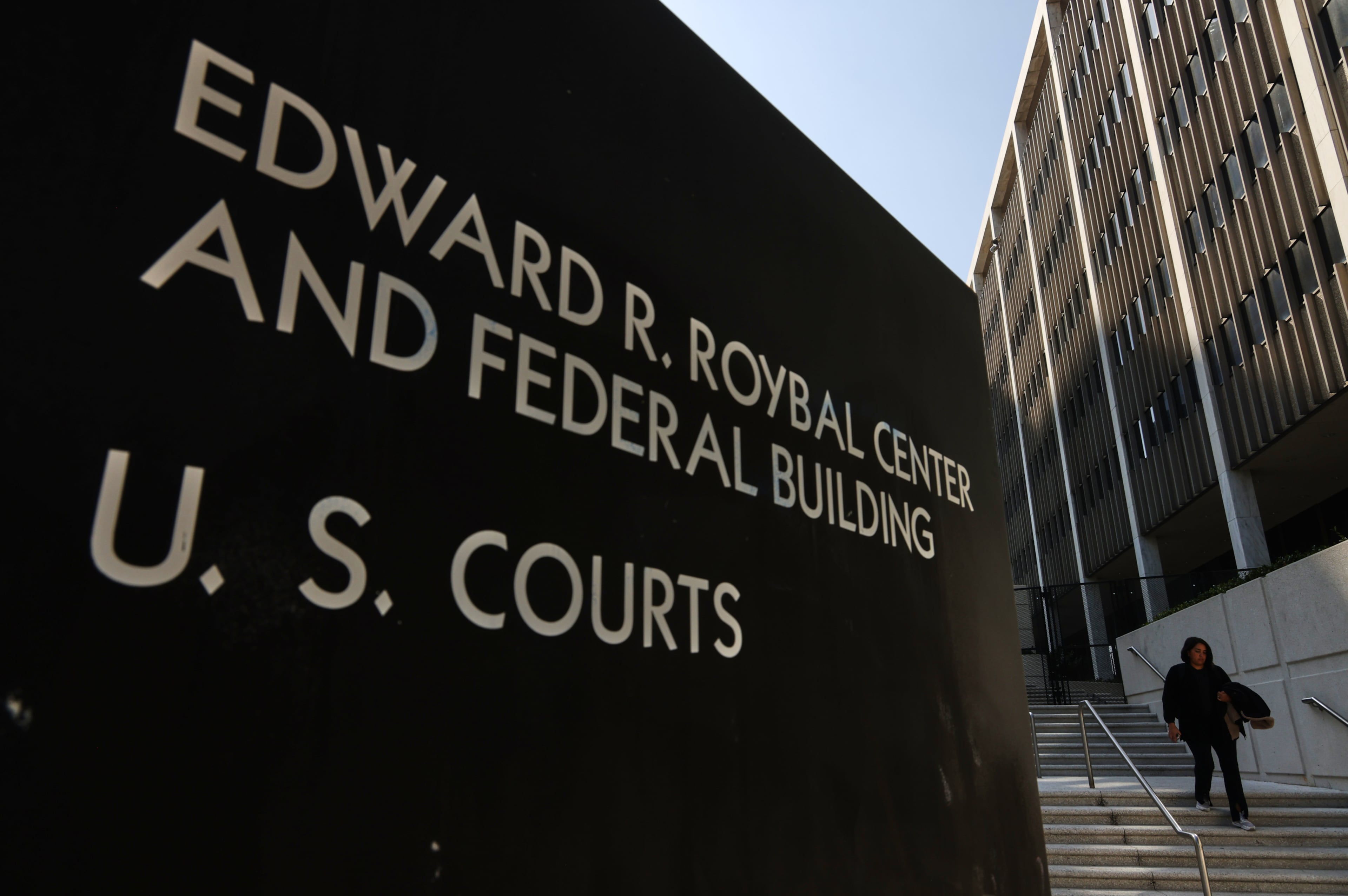Georgia judges deal blow to ICE’s new mandatory detention policy

After being arrested by federal immigration officials and sent to Stewart Detention Center earlier this year, Jesus Arizmendi Mora requested a hearing that could have led to him being set free on bond while his deportation case worked its way through immigration court.
A Mexican immigrant who spent more than 20 years living in the U.S., Arizmendi Mora wanted to make the argument that he was neither a flight risk nor a danger to the community, grounds that in the past made some detainees eligible for bond.
But Immigration and Customs Enforcement officials denied the hearing, saying Arizmendi Mora’s detention is mandatory and in line with a new President Donald Trump policy that subjects immigrants who entered the U.S. illegally to detention — putting an end to a decades-long practice of considering bond for those arrested while already living in the country.
Karen Weinstock, an Atlanta-based immigration attorney who has filed dozens of challenges to the administration’s new policy of denying bond hearings, filed a suit in the U.S. District Court for the Middle District of Georgia over Arizmendi Mora’s bond petition last month. The federal court system is separate and apart from immigration court, which is part of the Department of Justice in the executive branch.
Weinstock argued in the suit that immigration law dictates the only people subjected to mandatory detention are immigrants intercepted at the border or other points of entry, such as international airports. Immigrants without legal status apprehended inside the country are eligible for bond, according to the Immigration and Nationality Act, Weinstock said.

In a Nov. 3 judgment in favor of Arizmendi Mora, U.S. District Court Judge Clay D. Land wrote that he agreed with Weinstock’s interpretation and ordered the government to provide Arizmendi Mora a bond hearing.
“Congress clearly intended for some aliens, who are arrested and similarly situated to (Arizmendi Mora) to be provided with the opportunity for a bond,” he wrote, adding that denying that hearing is a violation of due process rights.
Weinstock said the ruling is a first-of-its-kind to come out of Georgia’s Middle District. That could set an impactful precedent, she said, since the Middle District covers the Stewart Detention Center, one of the country’s largest ICE detention facilities.
Since the ruling, there have been 15 similar decisions from the Middle District ordering immigrant bond hearings. And there are dozens more cases pending across the state.
The ruling “was an important, landmark case because it was the first. It’s the first domino,” Weinstock said. “My hope for Georgia is to be in a situation where we can get people released faster, and I think it’s going to happen the more cases we have.”
Mandatory detention, Weinstock said, is a tool “to pressure people to self-deport.”
The lawsuits became necessary this fall, after an immigration appellate court upheld the Trump administration policy of denying bond hearings.
Department of Homeland Security spokesperson Tricia McLaughlin said in a statement to The Atlanta Journal-Constitution that the ruling from the immigration appellate board “vindicating DHS on holding aliens without bond was the final nail in the coffin for Biden’s catch and release policies that dangerously unleashed millions of unvetted illegal aliens into American communities — and they used many loopholes to do so.”
In response to district court judges’ case-by-case invalidation of the no-bond policy, McLaughlin said: “Judicial activists and others have been repeatedly overruled by the Supreme Court on these questions. ICE has the law and the facts on its side, and it adheres to all court decisions until it ultimately gets them shot down by the highest court in the land.”
A right or a loophole?
Adjudication of immigration cases can take years. Waiting out that process at home on bond is tantamount to a loophole, current ICE leadership says, which led to the change in policy. As a result, Georgia immigrants arrested by ICE in recent months have been almost guaranteed long stretches in jail-like facilities across the state: Stewart Detention Center, the expanding Folkston ICE Processing Center or the newly reopened Irwin County Detention Center.
Although being released on bond was possible before the new Trump policy, not everyone qualified.

Immigrants were already subject to mandatory detention without bond if they had murder convictions or other serious criminal charges on their records. Earlier this year, a new law named for murdered Georgia nursing student Laken Riley added theft-related crimes to the list of disqualifying offenses.
Riley’s killer was a Venezuelan immigrant who had been arrested for shoplifting but not held for deportation.
From 2019 to 2024, just 40% of the nearly 18,000 immigrant bond hearings in Georgia resulted in bond being granted, according to data from the Transactional Records Access Clearinghouse, a nonpartisan research organization at Syracuse University.
Those who win bond must have been able to pay it in full, unlike bonds in a criminal setting, where defendants can pay a percentage of the full bail to leave custody. The median bond amount granted by Georgia immigration judges was $7,500, according to the TRAC.
The Trump administration’s greater reliance on mandatory detention took place as it expanded ICE detention capacity both in Georgia and across the country.
Earlier this month, the number of detainees in ICE custody reached 66,000, a record high. The agency’s detainee population surged by nearly 70% since January, when around 39,000 immigrants were detained.
“Politicians and activists can cry wolf all they want, but it won’t deter this administration from keeping these criminals and lawbreakers off American streets — and now, thanks to the Big Beautiful Bill, we will have plenty of bed space to do so,” McLaughlin said.


